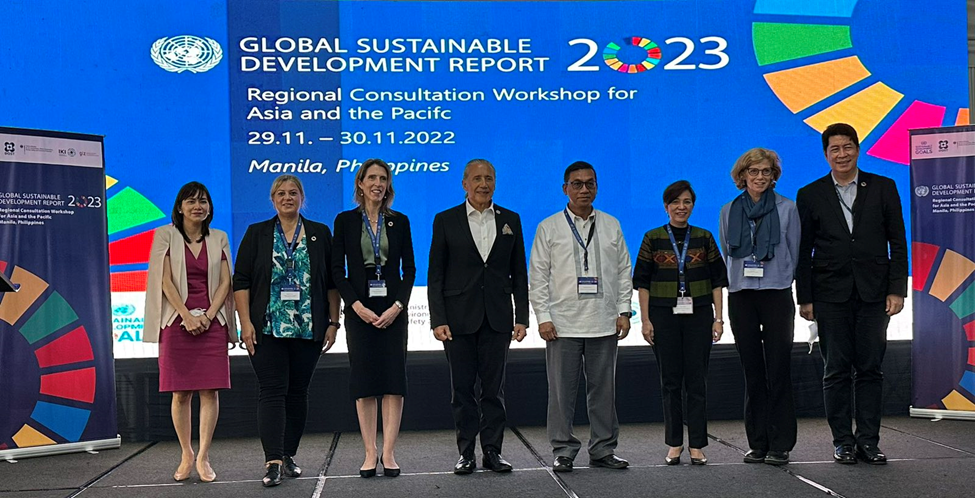
The Department of Science and Technology (DOST) co-hosted the United Nations Global Sustainable Development Report (GSDR) 2023 Regional Consultation Workshop for Asia and the Pacific that was co-organized by the United Nations (UN) Department of Economic and Social Affairs (DESA) and the Deutsche Gesellschaft für Internationale Zusammenarbeit GmbH (GIZ) in Makati City, last 29-30 November 2022.
The Regional Consultation welcomed around a hundred participants coming from the different parts of Asia and the Pacific. The High-level Consultation session on the first day heard keynote messages from the DOST Secretary Renato U. Solidum Jr., UN Resident Coordinator in the Philippines Gustavo Gonzalez, and Dr. Verónica Tomei of the German Federal Ministry for Environment, Nature Conservation, Nuclear Safety and Consumer Protection.
“Let us optimize science and technology as a lever for change to influence key stakeholders in governance, to stimulate economy and finance, to engage individual and collective action, and to build capacities,” DOST Secretary Solidum said. UN Resident Coordinator Gonzalez emphasized that, “achieving the Goals [Sustainable Development Goals] is more urgent now more than ever as the world faces existential challenges”. According to Gonzalez, the GSDR 2023 is very timely and critical as the world reaches the halfway point of the 2030 Agenda for Sustainable Development.
The Report is tasked to be written by an Independent Group of Scientists (IGS) appointed by the UN Secretary-General which would update the General Assembly States during SDG review deliberations or SDG Summit. Dr. Jaime C. Montoya, Executive Director of the DOST-Philippine Council for Health Research and Development (DOST-PCHRD), is one of the 15 leading experts appointed in the IGS. Dr. Montoya was joined in the Workshop by another IGS member, Dr. Nancy Shackell, Senior Research Scientist of Fisheries and Oceans Canada.
Dr. Montoya and Dr. Shackell provided, in a dialogue format, an overview of the GSDR and the progress in achieving SDGs during the High-Level Session. One of the highlighted points are the options for strengthening coherence among the four levers of change introduced in 2019 which are (i) governance, (ii) business and finance, (iii) individual and collective action, and (iv) science and technology.
To gather more detailed insights and experiences, the participants were divided into three working groups according to the priority areas of the Report. On the second day, several participants shared their reflections during the working group sessions through a fishbowl discussion and were also able to provide recommendations for call to action on the achievement of SDGs in a World Café format.
The GSDR was requested by the UN Member States to strengthen the science-policy interface and to provide evidence-based guidance on global sustainable development issues and the implementation of the 2030 Agenda and its SDGs. The report will be launched at the UN Headquarters in New York in September 2023. (By Karen Lou S. Mabagos, DOST-ITCU)

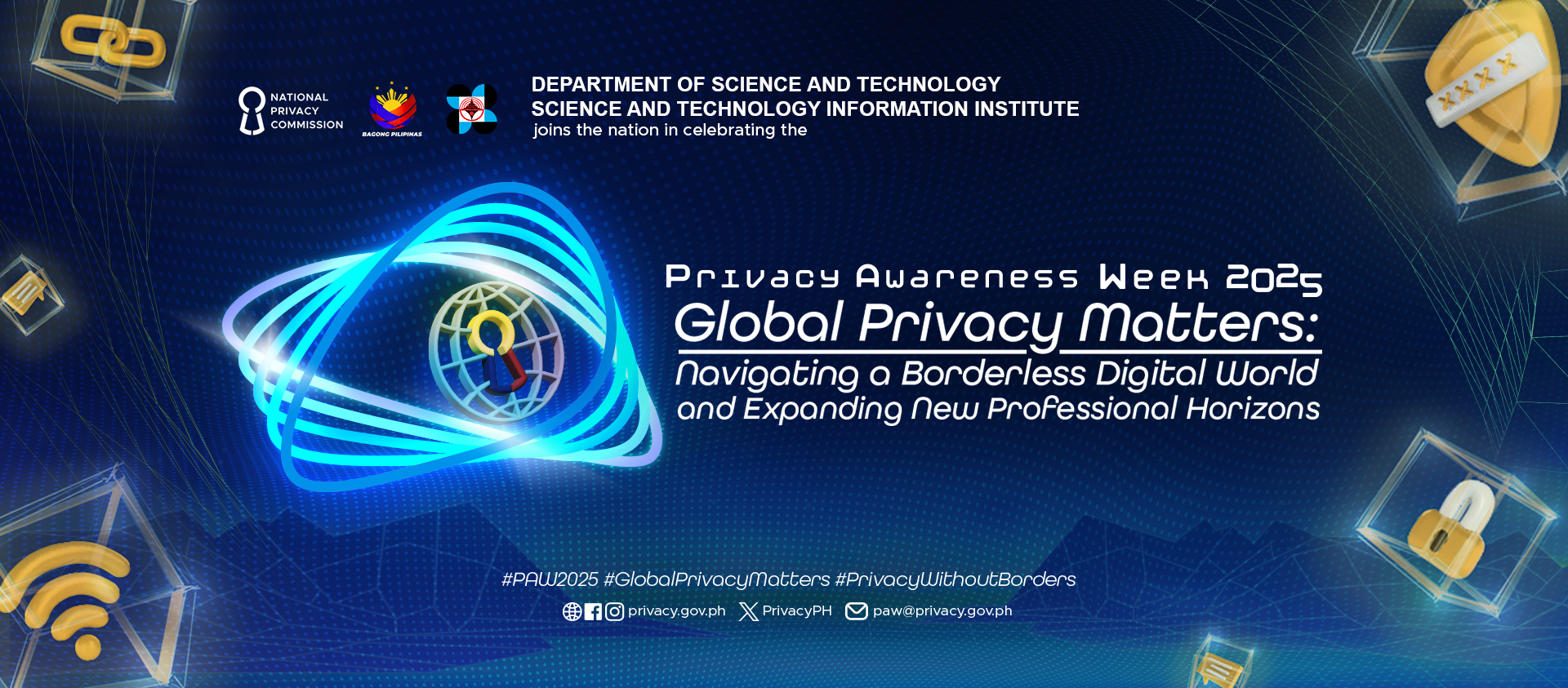
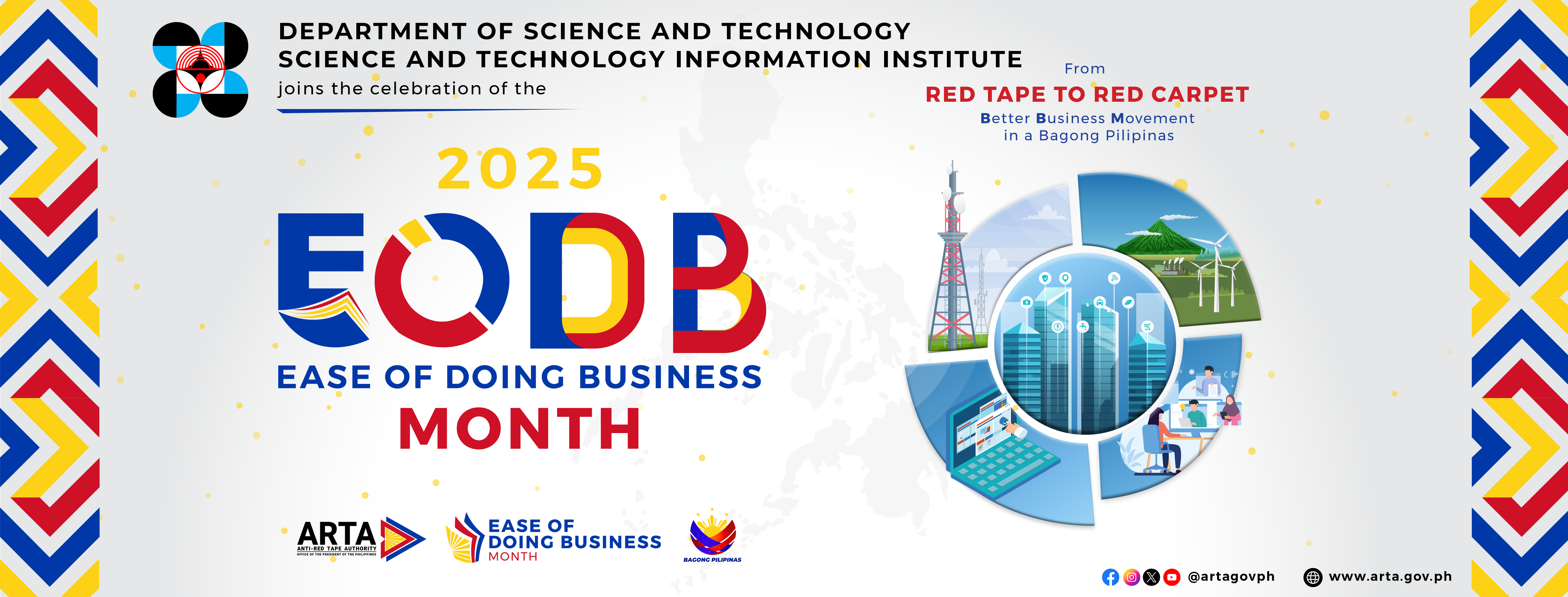
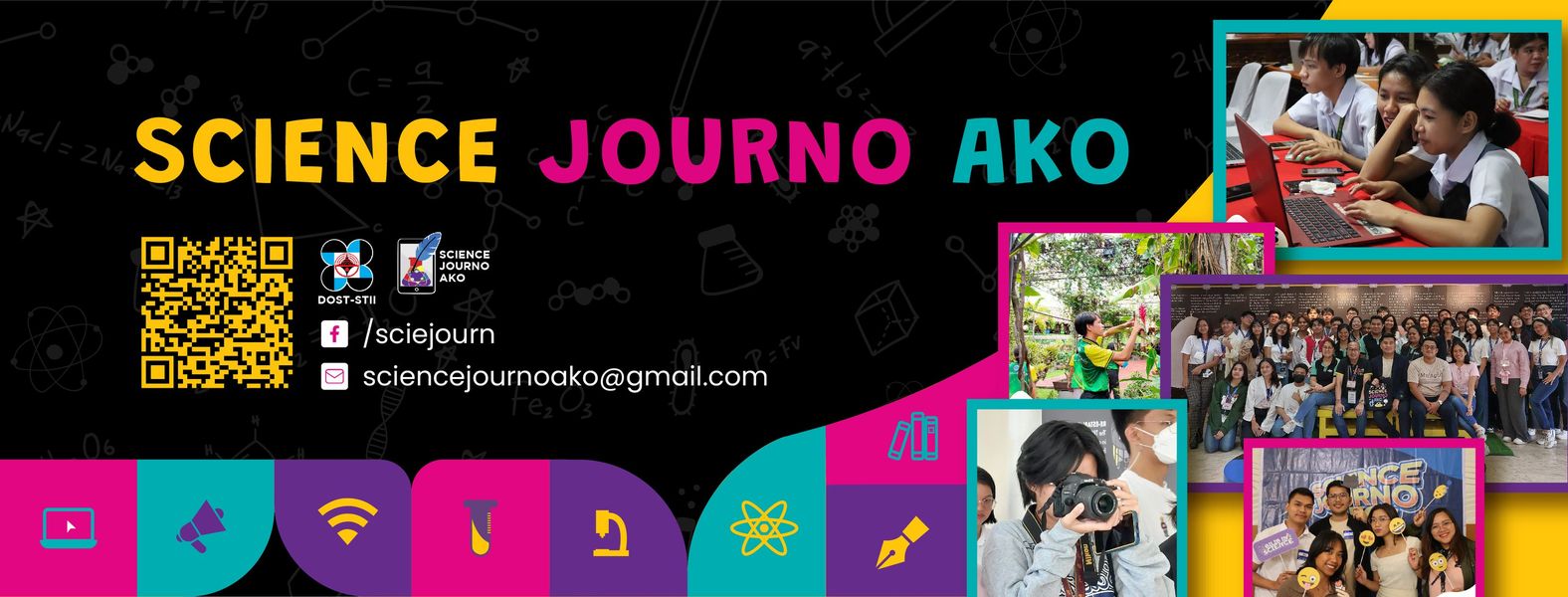
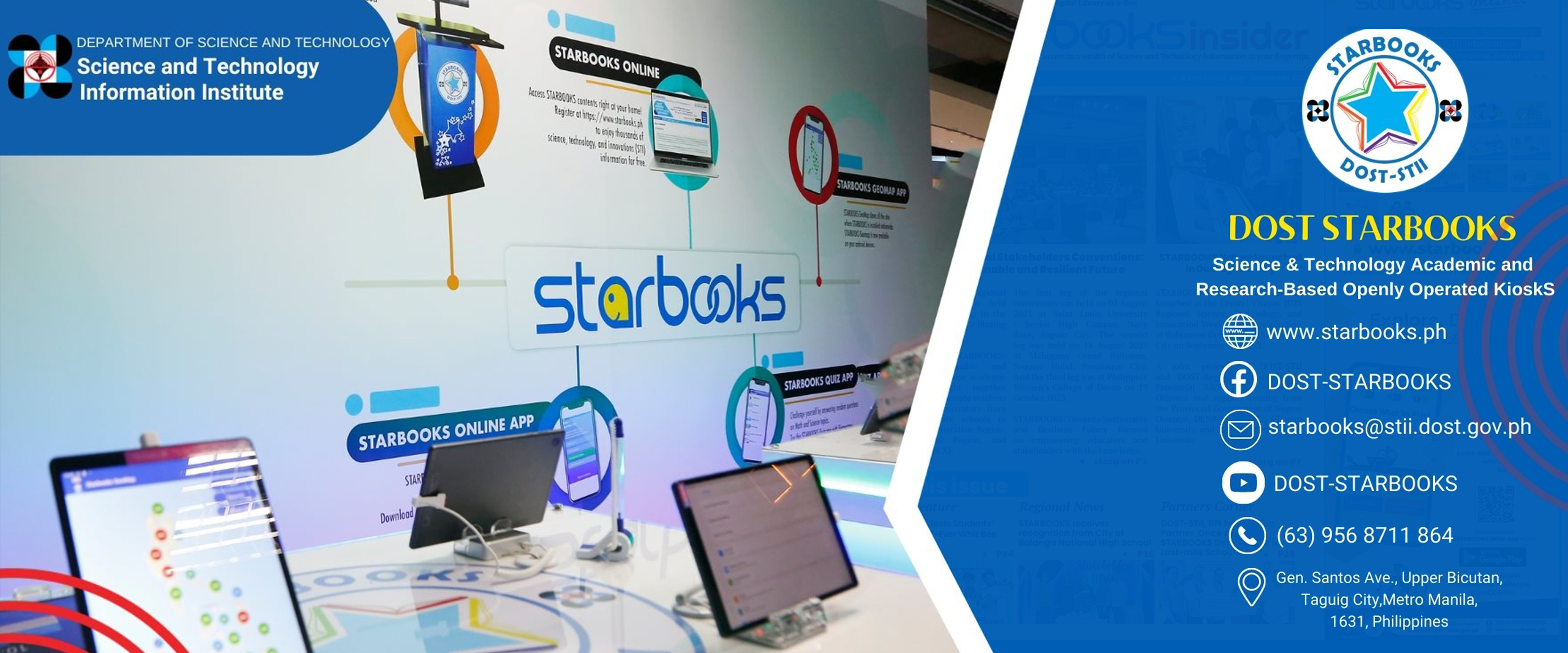
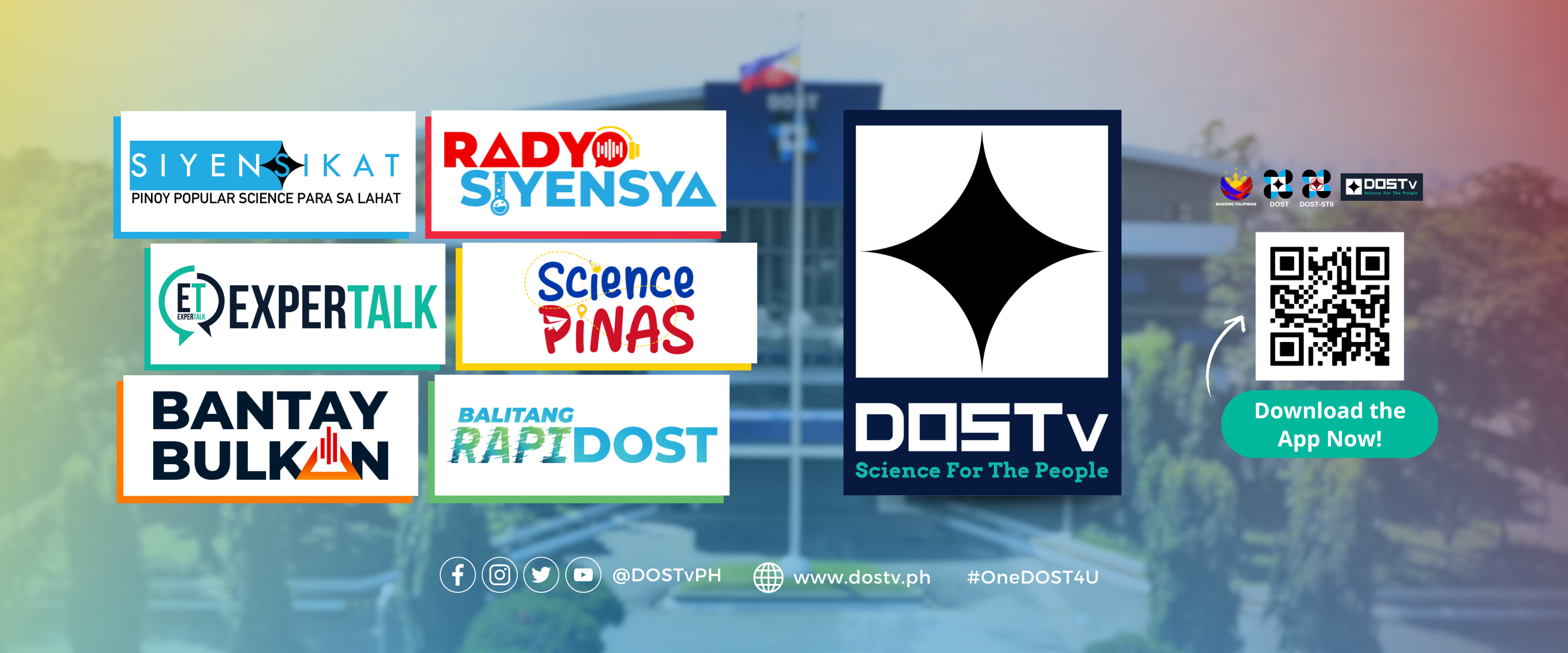

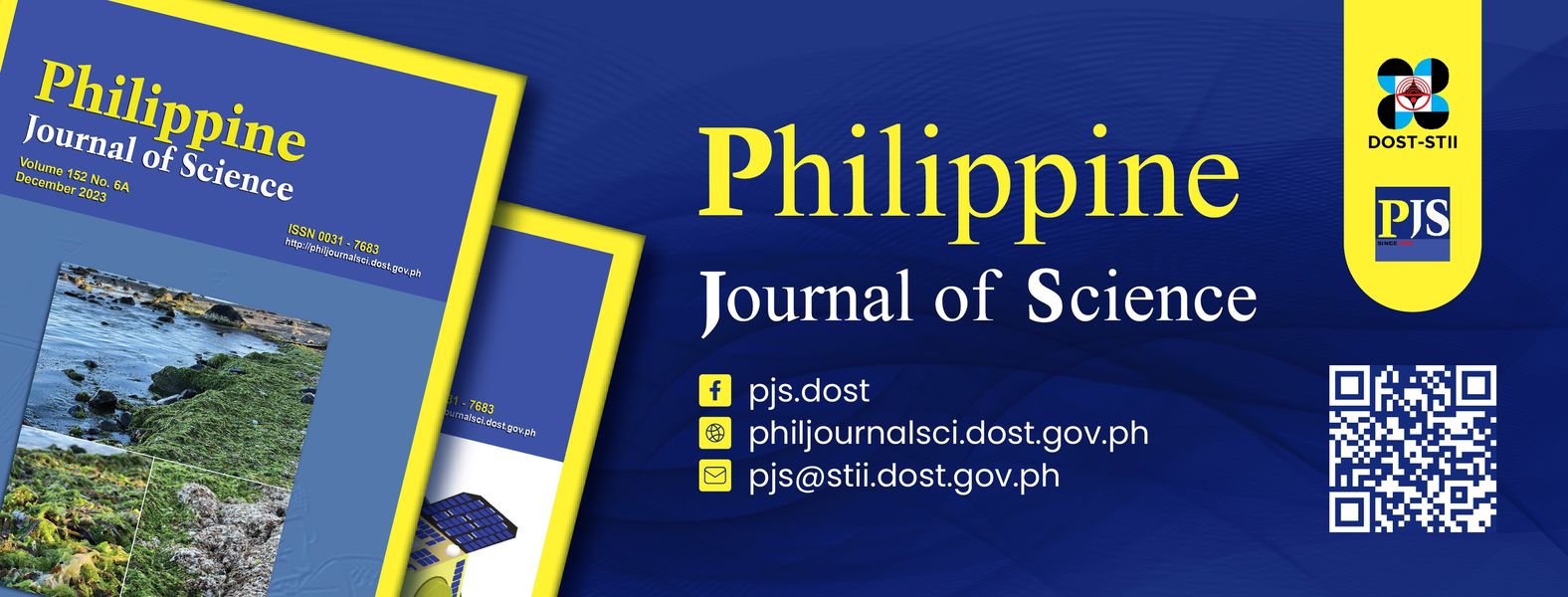




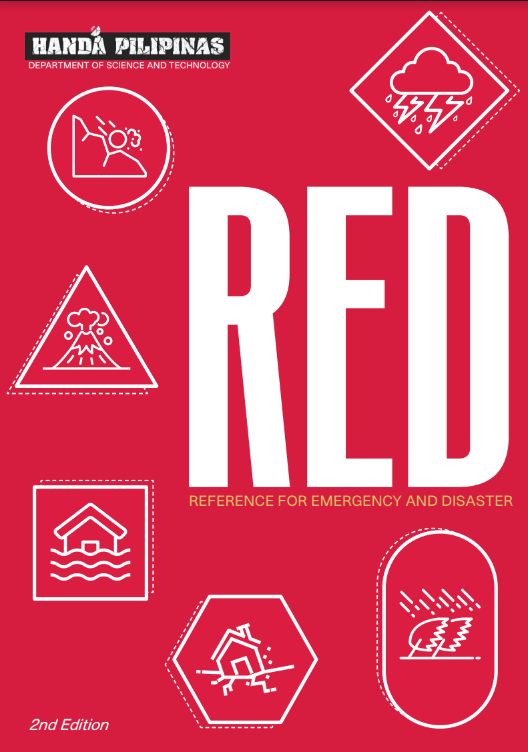





 21 in 2021 Technology Catalogue
21 in 2021 Technology Catalogue 21 in 2021 Technology Catalogue
21 in 2021 Technology Catalogue DOST Innovations - Web and Mobile Applications for Disaster Risk Reduction and Management
DOST Innovations - Web and Mobile Applications for Disaster Risk Reduction and Management